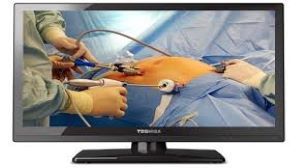Innovative Laparoscopic Surgery: A Novel Tissue Retrieval Device
Add to
Share
1,268 views
Report
2 years ago
Description
Laparoscopic surgery is a minimally invasive surgical technique that offers many benefits over traditional open surgery, such as smaller incisions, reduced blood loss, and faster recovery times. One of the key challenges in laparoscopic surgery is the retrieval of tissue specimens from the abdomen after surgery. This is particularly true for larger specimens, where the use of a retrieval bag is often required. To address this challenge, a novel laparoscopic tissue retrieval device has been developed. The device consists of a flexible, transparent sleeve that is inserted into the abdomen through a small incision. The sleeve is then expanded using a balloon, creating a larger cavity for the tissue to be retrieved. Once the tissue is inside the sleeve, it can be removed from the abdomen through the same small incision used for the laparoscopic instruments. One of the key advantages of this novel laparoscopic tissue retrieval device is its ability to reduce the risk of tissue damage during retrieval. Traditional retrieval methods, such as using a retrieval bag, can result in tissue trauma or rupture, which can lead to complications and longer recovery times. The use of the flexible sleeve reduces the risk of tissue damage, improving surgical outcomes and reducing the risk of complications. Another advantage of the novel laparoscopic tissue retrieval device is its ease of use. The device can be quickly and easily inserted into the abdomen and expanded to create a larger cavity for the tissue to be retrieved. It can also be used in a wide range of laparoscopic procedures, from simple surgeries to more complex procedures. Overall, the development of this novel laparoscopic tissue retrieval device represents a significant advance in the field of laparoscopic surgery. By improving the safety and efficiency of tissue retrieval, it has the potential to improve surgical outcomes, reduce the risk of complications, and improve the quality of life for patients undergoing laparoscopic surgery. In conclusion, the novel laparoscopic tissue retrieval device is an innovative tool that has the potential to revolutionize the field of laparoscopic surgery. Its ability to reduce tissue damage, improve surgical outcomes, and increase efficiency makes it an indispensable part of any surgical toolkit. As laparoscopic surgery continues to evolve, the development of new and innovative tools like this one will help to ensure that patients receive the best possible care. The development of the novel laparoscopic tissue retrieval device is a significant breakthrough in laparoscopic surgery. One of the major challenges in laparoscopic surgery is the retrieval of tissue specimens from the abdomen after surgery. Traditional retrieval methods can lead to tissue damage, which can result in complications and longer recovery times. The development of this novel device addresses these issues, improving surgical outcomes and reducing the risk of complications. The device is designed to be used in a variety of laparoscopic procedures, from simple surgeries to more complex procedures. Its flexible and transparent sleeve can be inserted through a small incision and expanded using a balloon, creating a larger cavity for the tissue to be retrieved. This allows for larger specimens to be retrieved without the risk of tissue damage or rupture. The ease of use of the device is another key advantage. It can be quickly and easily inserted into the abdomen, and expanded to create the necessary space for the tissue to be retrieved. Its transparent design allows the surgeon to easily visualize the tissue being retrieved, reducing the risk of accidental damage. Once the tissue is inside the sleeve, it can be easily removed from the abdomen through the same small incision used for the laparoscopic instruments. The use of the novel laparoscopic tissue retrieval device has been shown to improve surgical outcomes and reduce the risk of complications. In a study of patients undergoing laparoscopic cholecystectomy, the use of the device reduced the incidence of tissue damage and improved the quality of the tissue specimens retrieved. The study also found that the device reduced the overall time required for tissue retrieval, improving the efficiency of the procedure. In addition to its use in cholecystectomy, the device has also been used in other laparoscopic procedures, such as hernia repairs and gynecological surgeries. Its versatility and ease of use make it an indispensable part of any laparoscopic surgical toolkit. Overall, the novel laparoscopic tissue retrieval device represents a significant advance in laparoscopic surgery. Its ability to improve surgical outcomes, reduce the risk of complications, and increase efficiency make it an invaluable tool for surgeons. As laparoscopic surgery continues to evolve, the development of new and innovative tools like this one will help to ensure that patients receive the best possible care.
Similar Videos





